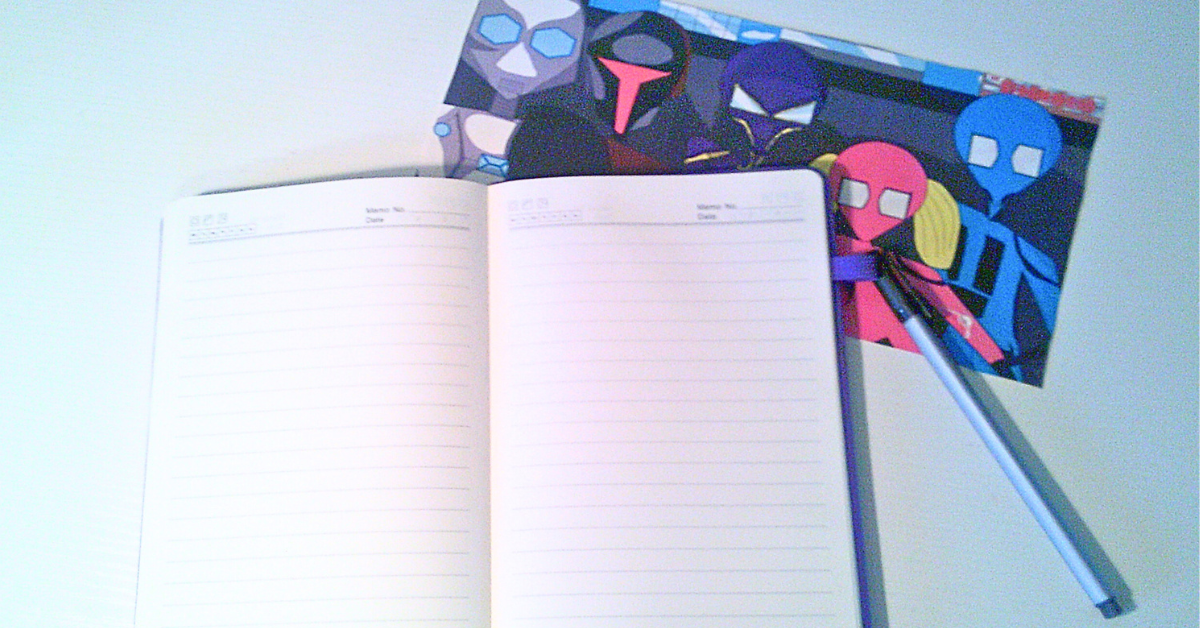Intro
One of the most common writing questions I see online is how to write a character who is a different gender from you—especially a main character. And I think it’s great that people are trying to be more conscious and respectful when it comes to writing characters who aren’t the same gender as them, particularly because it hasn’t always been that way in the past. (Looking at you, metal bikini fantasy writer dudes.)
While I don’t consider myself an expert by any means, I do certainly have some experience. In fact, most of the main characters I’ve written at the moment are not the same gender as me, which has led to me asking myself all sorts of random questions that I never thought about before.
The good news is, it’s not actually as hard or intimidating as it may seem. Let’s go over some of the things I try to keep in mind when I’m doing it, and some strategies that could help anyone trying to do it themselves.
Don’t Overthink It
Probably the most frequent problem I’ve seen when it comes to authors writing a character who’s a different gender from them is that they seem to try way too hard to make the character seem feminine or masculine or whatever it is they may be, sometimes to the point where it gets a little cringy.
While there are definitely differences between genders that shouldn’t be ignored, they often aren’t as dramatic as we might think. A lot of the time, they actually manifest in more subtle ways that we might not even notice, which is what can make them so hard to pin down—and also what makes it so glaringly obvious when a writer is trying too hard and putting a little too much emphasis on it as a result.
But how do you tell when you’re taking it too far? How do you know what amount of, say, “feminine-ness” is enough? Well, that’s got one easy answer:
Read Books By (And About) People Who Are the Gender You Want to Write About
The main types of books that I’ve seen authors writing characters who are a different gender from them weirdly are sci-fi/fantasy and romance. And “weird” doesn’t always mean “bad”—but it does mean “off.” Male sci-fi/fantasy writers sometimes write their female characters in a goofy way, and female romance writers sometimes write their male characters in a goofy way. Why is this?
The answer, I think, is simple: Writers tend to write—and draw inspiration from—what they like to read. And sci-fi/fantasy has traditionally been a very male-dominated genre, just like romance has traditionally been a very female-dominated genre. So many writers within those genres have had very little exposure to books by and about people of different genders, giving them only the interpretation of, say, men, that other women before them—who have likely also mostly only read books by other women—have had to base their male characters off of.
In short, you’ve got to get yourself out of the bubble of people of your own gender—and their interpretations of people of other genders—that you’re stuck in. The best way to do this is by reading books by and about people who are the gender that you want to write about.
Reading lets you step into another person’s shoes, which is exactly what you have to do when you’re writing too—possibly to an even higher extent. You have to try to think like your character would, even if they might be very different from you. By reading books by and about people like the ones you want to write about, you’re exposing yourself to the viewpoints of people who are more like your character than you are.
Without much—if any—conscious effort, you’ll eventually start to get a feel for what seems right and what seems off, and your characters of other genders will start to seem more authentic.
Talk to Someone Who Knows
By reading books by and about people of other genders, you’ll start to gain a sense of what seems right, but sometimes that sense alone might not be enough. When that happens, there’s only one thing you can do: Ask someone who knows. If, say, you feel like your female character seems off, but you can’t figure out why, see if you can talk to a woman you know about it, and maybe they can tell you where you went wrong. The same goes for any other gender, whether it’s male, trans, or anything at all. The person doesn’t necessarily have to be another writer, just someone who you feel comfortable asking (and who, possibly more importantly, would feel comfortable answering).
Whether you’re unsure about how well you pulled it off or not, it’s also a good idea to have at least one person of the gender you’re writing about read the story before it’s published, because they might catch something weird that you could have missed and might not have even thought about. It also gives you a chance to see how someone of the gender you’re writing about could react to the character, which is great for if you’re worried that you did something that could wind up being offensive.
Everyone will react differently to the character, but hearing the opinion of someone who knows what it’s like to be that gender can be invaluable if you’re striving for authenticity.
Outro
That’s all for this one. I hope that you’re found this interesting and/or useful. Thank you for reading, and be sure to check back here later this month to see the next book recommendation post!












